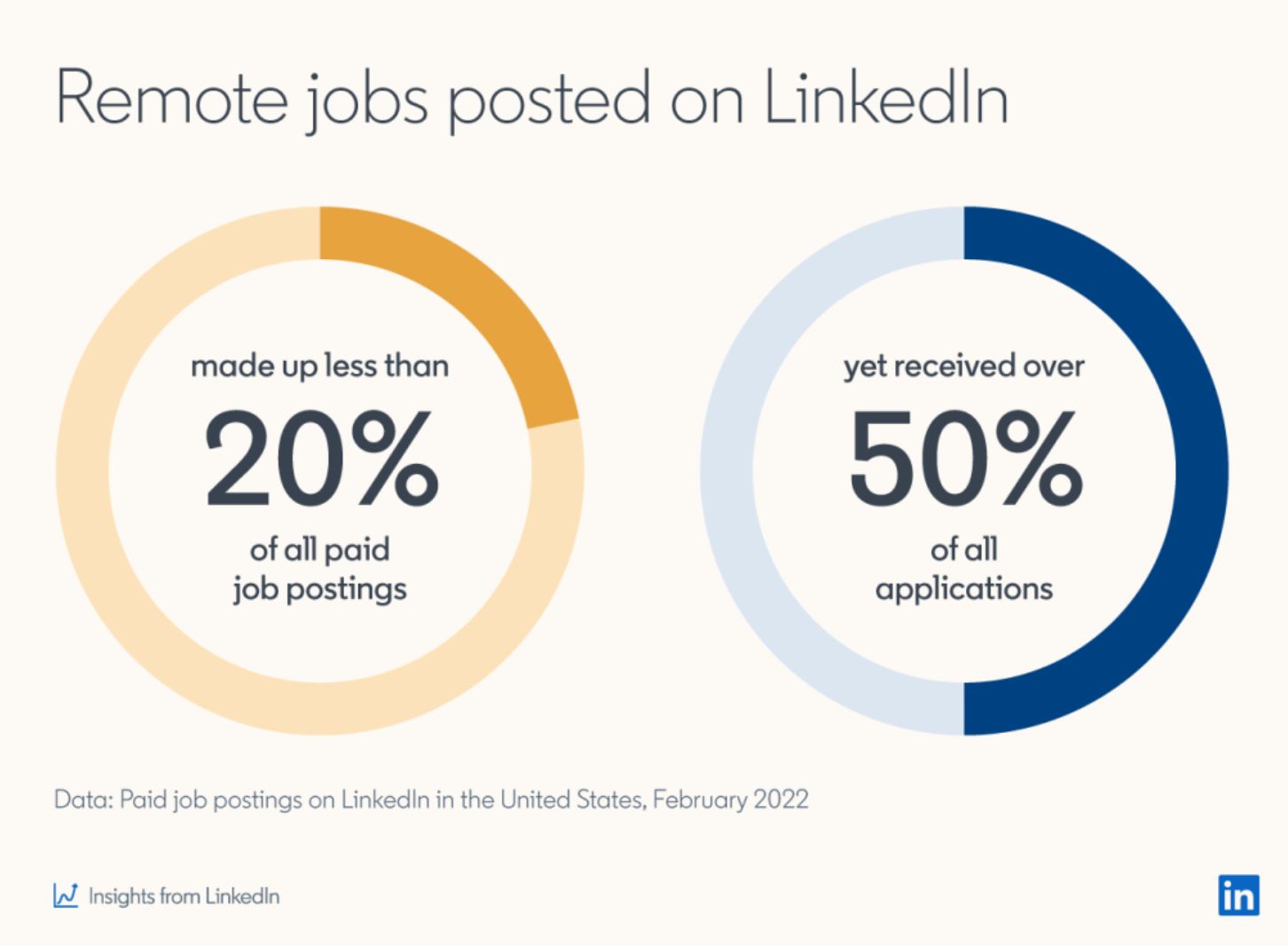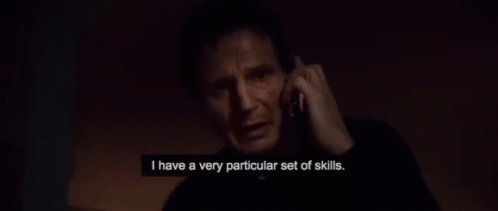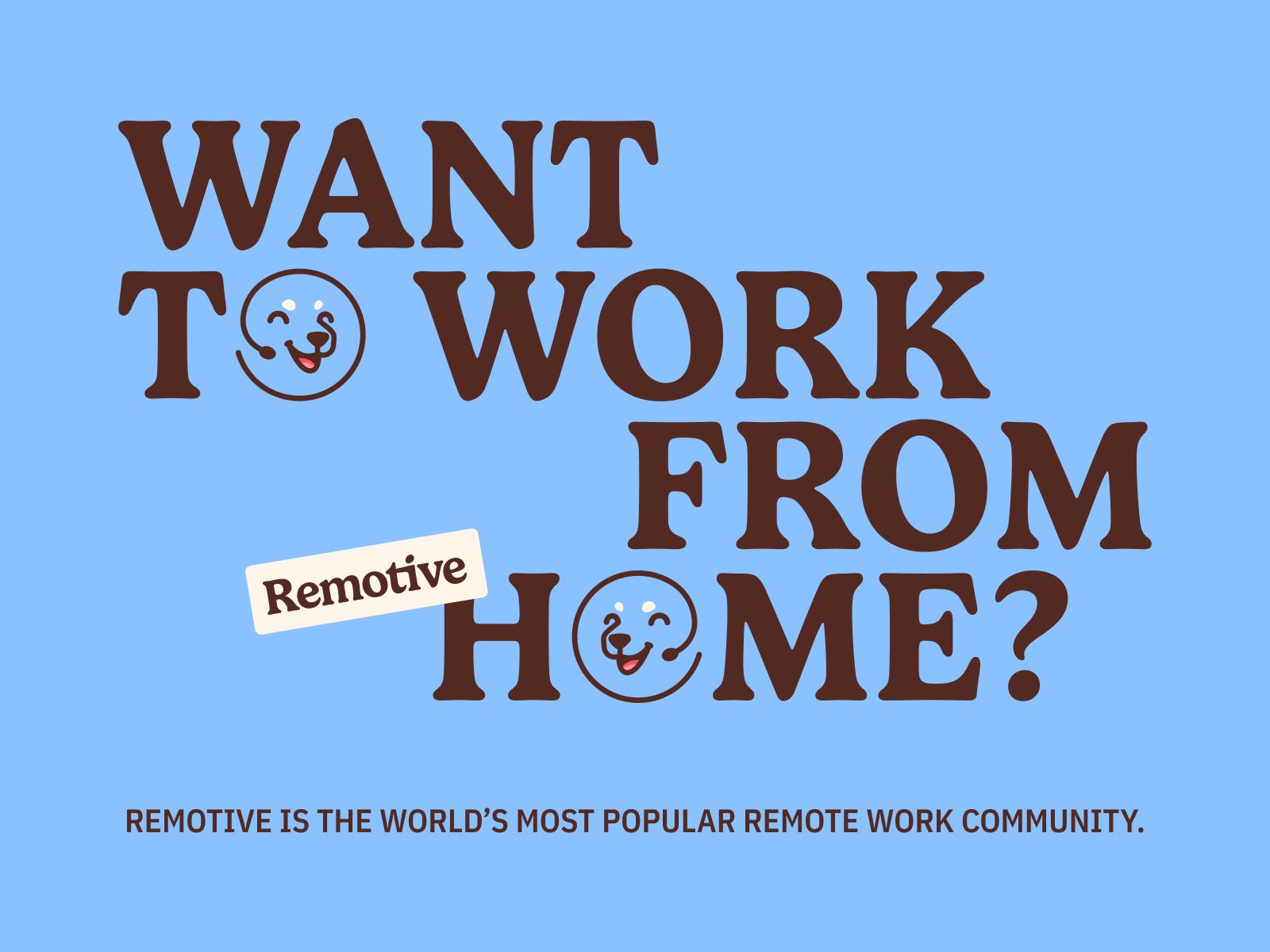You've just been laid off? Sorry to hear that, it sucks. Now what?
First, you're not alone. Over 1,000 companies laid off 150,000+ in 2022, according to layoffs.fyi.
I'll be blunt, the 2023 hiring market is the toughest we've seen in a decade.
This article will help you get a remote job ASAP.
To land your next gig, you need make a plan and ace it.
Let's dive in!
NB: Never worked remotely? Start here and resume reading afterwards.
Why is 2023 hiring market tough?
Remember when LinkedIn recruiters messaged you to"catch-up on new opportunities"?
Yep, that was before. Today things are different: think of it as a perfect storm.
Tech companies over-hired for a decade. Then, the economic outlook worsen. So you've got many tech professionals looking for remote jobs.
Meanwhile, most remote companies are hiring less. Not ideal.
Getting hired is competitive right now, that's why we're sharing tips.
Where can I find a remote job in 2023?
Most people start on LinkedIn, which is fair. But...
Check this out:
LinkedIn CEO Ryan Roslansky
— Brian Brackeen (@BrianBrackeen) December 12, 2022
"Pre-pandemic,~1% of all jobs posted on LinkedIn were remote. As of today, that number is ~14%...but that's not the fascinating part. What's fascinating is north of 50% of all job applications on a daily basis on LinkedIn go to that 14% of remote jobs"
In other words:
"EVERYONE AND THEIR MOM apply to VERY FEW remote jobs"
Yeah LinkedIn is great, but remote jobs listed there aren't always top quality and the competition is high.

I'd recommend looking elsewhere too. For instance, start browsing 2,000+ hand-curated remote jobs.
We also list the top 100 remote companies here and our full list has 16,000+ companies there.
But wait...
Remember, anyone can browse remote job listings. Is that enough?
Most remote jobs get hundreds of applicants. If you want your application to be on top of the pile, keep reading.
How to apply for a remote job in 2023?
Here are my top three tips on finding and applying to a remote job.
- Don't be a generalist, be a specialist.
Ok waaaay too many people just say "Please hire me, I can do a bit a everything!". This is very unhelpful to recruiters.

Because recruiters hire for a specific role, they want you to hit the ground running and deliver from day one. Don't be generalist, being a Jack-of-all-trades won't help you.
Learn to introduce yourself as a specialist in your field, articulate clearly how you'll start helping a company on your first day.
Actionable tip: Update your LinkedIn Headline. It will increase your visibility on LinkedIn. Check out your peers for inspiration, use words & hiring managers could use to find you.
- Don't spray and pray, focus.
Most applicants I meet apply to hundreds of jobs and hope for the best. This hardly ever work, broad/general applications almost never work.
Spend time on each application. My rule of thumb would be to apply to 10-15 companies at once. Read up on how others managed to land their remote job.
- Don't just click "Apply Now". Network instead.
There's an Abe Lincoln quote that goes like this:
"Give me six hours to chop down a tree and I will spend the first four sharpening the axe.”
In other words, you need to spend an inordinate about of time figuring out how to apply to a remote job. Clicking the "Apply Now" button has you thrown in a pit with hundreds of others.
Yet it doesn't have to be this way.
Remember that finding a remote job on LinkedIn or Remotive is a signal that a company is hiring.
Here are 10 great tips for you to write down. Remember, any virtual interview is similar to an open-book exam. It's OK to have notes on your desks with prepared answers and pointers!
I'm a Chief Technology Officer at Deloitte.
— Leo Alexandru (@theleoalexandru) December 9, 2022
I've hired 100+ people in my career and I know in the first 9 minutes if a candidate has what it takes.
Here are 10 things that will make you stand out in any interview:
How YOU decide to apply has a huge impact on how your application is received.
It's estimated that 85% of jobs are filled through connections and word of mouth...
Your best bet is always to come in highly recommended. Start mining your network, looking for any connection to past or present employees.
As an illustration, think about Conferences. This advice is from Patrick McKenzie, formerly at Stripe:
"Most conference talks end up on Youtube. Those talks are often by senior employees and almost always include their email address on a slide. It's a credible proof-of-human-work into the first paragraph of a cold email:
"I really enjoyed your talk on XYZ, particularly the point about ABC. I've written on that before here: $LINK. Could we perhaps chat for 15-30 minutes about what you are doing recently at $COMPANY?"
You can be pretty explicit about it being a hiring oriented conversation if you want, but the person you are emailing is not stupid. That is why you are emailing them, after all."
NB: Want more tips? We've got you! Here's a full, free webinar where I cover those themes during 25 minutes.
How should I prepare a remote interview?
Remember the saying:
You never get a second chance to make a good first impression.
It's true. We're all humans, we judge others. First impressions matter. If you're trying to wing your interview, you're likely to fall flat on your face.
So, what can you do to prepare your interview?

Here are some great, timeless tips from Jessica Zwann, one of my favorite HR expert:
1) Strengths
Ask someone you trust what your strengths are.
Write them down and be very specific about it.
You're good at planning? When? Give me an example.
Use this to frame your POV on what you excel at.
2) IBWOT
Use this framework when answering questions...
- Issue
- Breakthrough (What was your breakthrough in solving it? Did you have a specific insight?)
- Work (How did you make that insight the solution? Who helped)
- Outcome
- Take away
3) Prep
While you're here, write down a few IBWOTs for the following:
- Example of a time the team couldn't align
- You were under resourced
- A time you went against the grain/showed courage
Ask interviewers ahead of time (honestly, just email them!) "Is there anything you'd like me to get prepared or think about ahead of the interview?"
It's fine to come with a few warmer examples from your history if you can struggle to come up with perfect answers on the spot.
4) Breathe
Don't be afraid of silence. Be open to say "that's a great question, let me think about it for a minute." Take that time to calmly (breathe) leaf through your history in backwards order.
It's important that you come prepared, with relevant questions about the role/company/market. As Virgile shared, you should have more questions than you can ask!
Jessica advise to ask any questions, even the "sensitive" ones, here are examples:
What's your runway and fundraising plans? What is your MRR?
Which customers are growing? What do your top 3 biggest customers have to say about you? Why did your last big customer churn?
Biggest threat to your business in the next 3 years?
What do you want to see out of this role if we were in a performance review in 1 year's time?
What are the next 3 projects that you'd like to see launched to improve the team?
NB: It's always recommended to send a nice follow-up note after the interview, here’s how to follow-up gracefully.
This feels like a lot of work. Is it all worth it?
Applying remotely is tough yet 100% worth it.
Skipping your commute is great.
Having flexible hours is great.
Spending more time with the kids is great.
"Americans who are working from home have reclaimed 60 million hours that they used to spend commuting to an office each day. They’re now using that time to get more sleep instead."https://t.co/9JFITRoW9I
— Morgan Housel (@morganhousel) October 19, 2022
If you ever want to connect with others during your job search, we run a supportive community of fellow remote workers on Slack.
What do I do next?
If you liked this, make sure to send it along to others you may benefit from it.

Join the Remotive newsletter
Subscribe to get our latest content by email.
